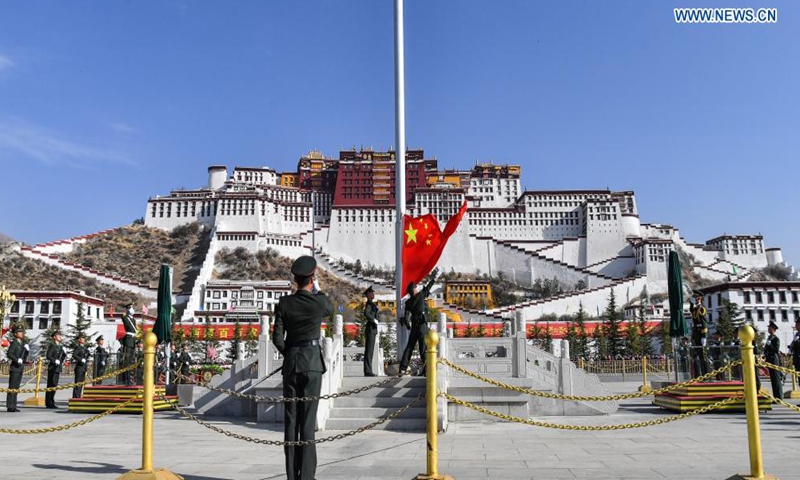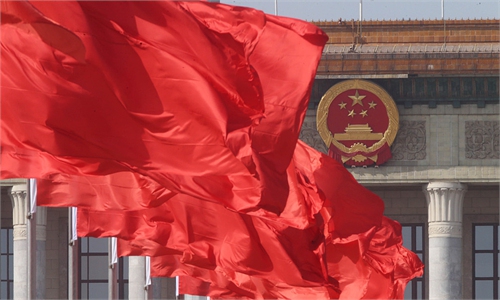Two sessions kick off in Xizang while uncertainty remains in Shaanxi due to COVID surge

A flag-raising ceremony is held to celebrate the Serfs' Emancipation Day at the square in front of the Potala Palace in Lhasa, capital of southwest China's Xizang Autonomous Region, March 28, 2021. (Xinhua/Jigme Dorge)
The Fifth Session of the 11th Xizang Regional Committee of the Chinese People's Political Consultative Conference (CPPCC) opened in Lhasa on Monday, marking the start of the 2022 local two sessions, the annual meetings of provincial-level lawmakers and political advisors, who will discuss local economic and social development issues last year and make plans for the year ahead.
As the epidemic has rebounded in some regions , epidemic prevention and control measures have become a priority in the local two sessions in Xizang, the first provincial-level region to hold its annual meetings before the national two sessions in early March.
The Fifth Session of the 11th People's Congress of Xizang (Tibet) Autonomous Region, the other one of the local two sessions, will be held on Tuesday.
Local media in Xizang reported that all the local two sessions participants, including lawmakers, journalists and staffers, are required to undergo on-site nucleic acid testing.
Daily health monitoring, masks and taking elevators separately are required as well.
According to Chinanews.com, 22 provincial-level regions across the country have set the dates of their local two sessions for mid-to-late January.
Northwest China's Shaanxi Province, whose capital city Xi'an is experiencing a COVID-19 resurgence, has set the opening date of the local session of the people's congress on January 19, with concerns that it might be postponed if the latest surge cannot be tamed at an early date.
Xi'an reported 90 new infections on Monday, bringing the total cases in the latest surge to 1,663. As of Monday, the city had designated three high-risk areas and 64 medium-risk areas.
Mao Shoulong, a professor of public administration at the Renmin University of China, told the Global Times on Monday that if a new round of nucleic acid testing in Xi 'an reduces the number of positive cases, and emergency management works well, Shaanxi's two sessions may still go on as scheduled.
The local two sessions have been postponed in the past two years, but they were all held before the national two sessions.
Even if the local two sessions are postponed, they will not be held after the national two sessions, Mao said, as "local two sessions are more about local affairs… representatives will attend the national two sessions to report on local work and discuss national issues."
After these local two sessions, discussions at the national level are mainly about national issues and reports on the work of the past year.
In extreme cases, if the epidemic persists and some of Xi'an's lawmakers and political advisors are quarantined, they may miss the provincial two sessions. Although there is no precedent to participate in local two sessions through video, this possibility cannot be ruled out this year, Mao said.
He stressed that on the premise of ensuring safety, the epidemic outbreaks will not affect the attendance of Xi'an representatives who will go through a strict health check before the national two sessions in Beijing.


